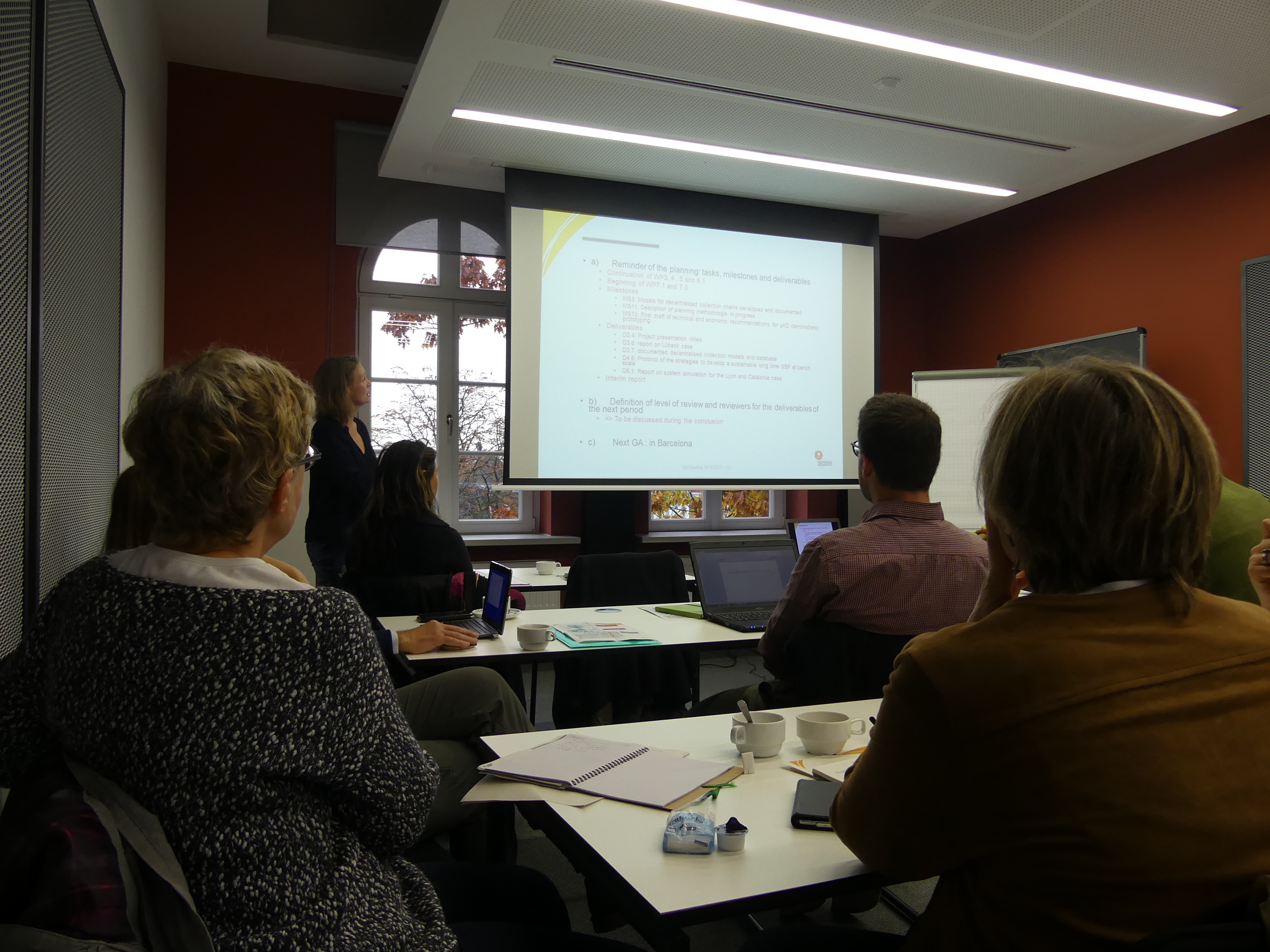The DECISIVE consortium was brought together for the 3rd time since the beginning of the project between the 17 and the 19 October 2017.
This 3rd project meeting started with a public conference hosted by the Hamburg University of Technology, one of the DECISIVE partners. The conference brought together about 80 participants, especially local stakeholders from the City of Hamburg. Centred on how to close the food loop in urban areas, it involved both DECISIVE and local experts around three main topics: the potential of food waste as bio-resource, actual experiences of decentralised systems combining food waste and wastewater management and how to close the waste-food loop in urban farms. The conference ended with a round table discussing the future of bio-waste recovery, where the potential of decentralised approach as promoted by DECISIVE was tackled. While some speakers highlighted the possible challenges of implementing such systems in urban areas linked with the lack of available space and the constraining safety and environmental regulations, other pointed out the advantages of such approaches to limit the transport costs and enhance the local recovery of the process’s by-products. All speakers also agreed on the necessity to reduce food waste generation at the source, which must be the priority of local food waste strategies.
The DECISIVE partners were then invited to visit the eco-settlement of Lübeck-Flintenbreite located about 70 km away from Hamburg. This eco-district was launched in the early 2000s and encompasses more than 100 housings. It consisted in a pilot experiment to develop an eco-innovative, decentralised approach of wastewater: grey water (from showers and washings) is separated from black water (from toilets). Grey water is treated in a reed-bed filter while black water is collected in a decentralised plant thanks to vacuum toilets allowing saving water. The Lübeck settlement will be one the DECISIVE pilot site where the decentralised bio-waste management system will be experimented.
The 3rd General Assembly of the project was organised during the two following days. All partners were invited to share and discuss the project’s development, namely the micro-AD and SSF process specifications and the decision-support tool. The latter will allow the assessment of the potential benefits of a decentralised bio-waste system by public authorities or waste companies. Moreover, a GIS-based tool will help waste managers with the selection of potential locations for treatment units and collection routes, based on the location of waste producers and potential users of digestate and energy, as well as local constraints linked with the regulation.
Finally, the two pilot implementations were extensively discussed. These sites will demonstrate the feasibility and benefits of decentralised bio-waste handling systems in two different contexts:
- In Lyon (France), the plant will be implemented close to the Refarmer urban farm. It will treat about 50 t/yr of bio-waste collected in restaurants. This site will highlight potential synergies between urban farms and the DECISIVE system;
- In Catalonia (Spain), the unit will be implemented on a university campus, treating about 200 t/yr of bio-waste from both inhabitants and collective catering.
The consortium will now work to ensure a smooth implementation within 2018.

